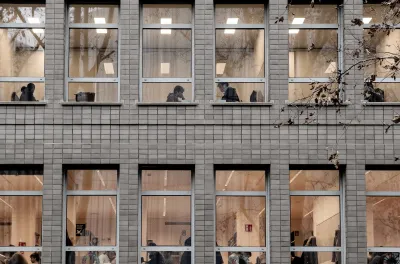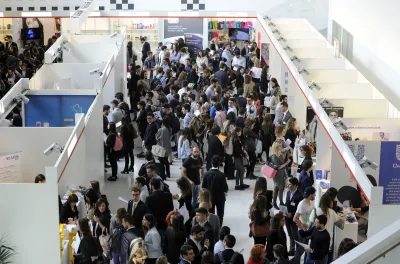
Getting Back to Work
The progress of every society, in every corner of the world and in every time period, has always depended on work — by its quality and the value placed on it not only at the individual level, but at the collective level especially. With the Industrial Revolution, major factories transformed into both economic engines and places of identity for millions of workers. The very first labor solidarity movements were born during this period. Unions were able to interpret the needs of the working class, synthesizing its demands and helping to build a collective consciousness capable of ushering in a new chapter in history. Fundamental rights were won through union struggles, such as fair wages, health protections, limited working hours, and social security. In such a context, work was not just an activity aimed at obtaining the material means of living; it represented a bond among individuals, an opportunity for shared growth and for belonging to a social class with the awareness of their own role in history.
With the end of the 20th century, the driving force of labor as a factor of social change had been obstructed. The gradual fragmentation of the productive fabric and the emergence of new forms of work have helped to disrupt the original model. Unions, once capable of synthesizing individual and collective interest, have lost centrality and are unable to adapt to an increasingly pulverized and volatile labor market. The advent of digitization and automation has further accelerated this fragmentation, creating new jobs and modes of employment that do not fit well with the traditional logic of representation. The result has been a progressive isolation of workers, increasingly alone in the face of change. The social cohesion that had characterized previous generations is gone, and with it also the idea of work as a pivotal element of individual identity in social relations.
Within this void of references lay fertile ground for a narrative that, over time, has underestimated the concept of work, depicting it as a sort of curse from which to be freed. The rhetoric of the “Great Resignation,” — disproven by the facts, by the way — further fomented this dystopian vision of the meaning of work. Young people were particularly affected by this narrative, who continue to enter the workforce with distrust. In a world where work is portrayed as unstable, unrewarding, exploitative, dangerous and in a state of decline, many young people have stopped seeing it as a tool for fulfillment and social mobility, and began considering it a necessary evil.
Against this backdrop, the advance of artificial intelligence and digital platforms has helped redefine the very concept of employment, replacing traditional tasks with automated processes and imposing new business models based on reducing labor costs. The opportunities offered by artificial intelligence have been obscured by the dominant narrative, which has favored a catastrophic view of the future of work. On the one hand, it is true that automation and AI are eroding some professions; on the other, they are also creating new opportunities in emerging industries. However, uncertainty and fear have ended up discouraging many young people from investing in education and upskilling, fueling a sense of futility of engagement in work.
But there is no future, either personal or social, that can exist without work. The risk of a society that undervalues employment is not only that of economic decline, but also cultural and identity decline. So, a trend reversal is necessary — a reconstruction process that starts with the organization of businesses. To do so, it is necessary to invest in professional training paths that respond to the needs of the current transformation, reducing the mismatch between skills supply and demand. The digital transition and environmental revolution impose a new definition of professional positions. Businesses must be at the heart of this transformation, promoting labor conditions that foster personal and professional growth, and encouraging employee wellbeing and active engagement.
A key role rests with institutions, which must implement effective, proactive employment policies, invest in lifelong training and education, and guarantee decent working conditions. But the unions must also rediscover their historical roles, demonstrating the ability to aggregate individual interests and translate them into a common vision. Every political and economic agenda must prioritize reducing inequality, combating low-quality work, and creating career opportunities for young people. This is the only way we can reverse the trend and restore the value labor deserves: that of being an economic engine and a pillar of social modernization/renewal.








